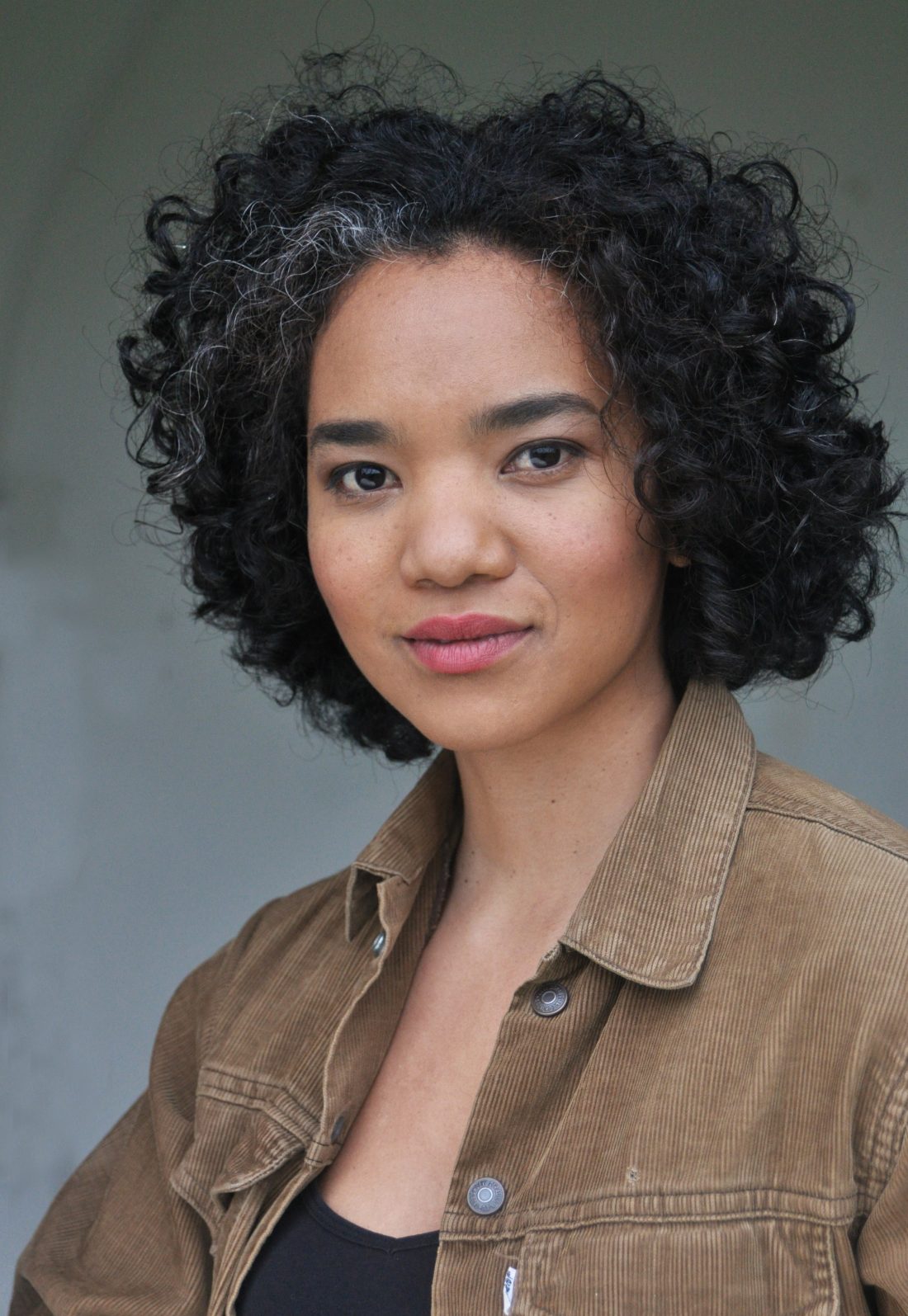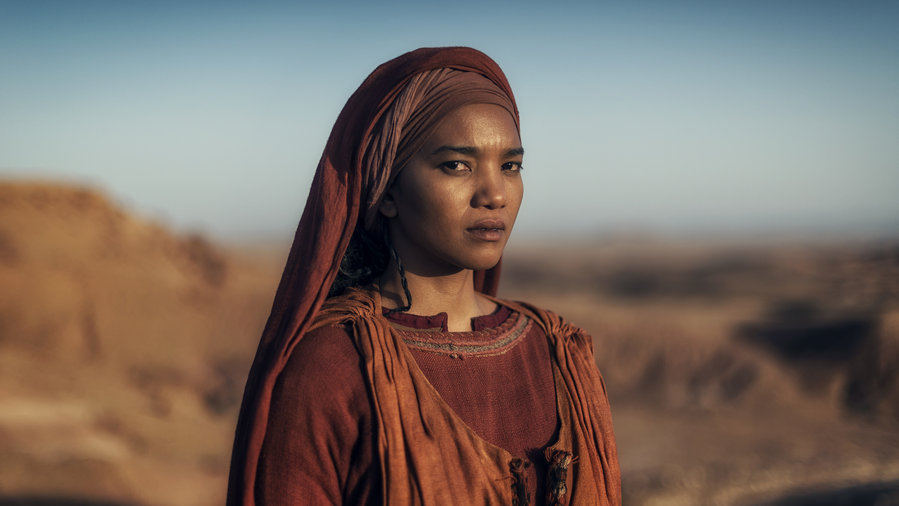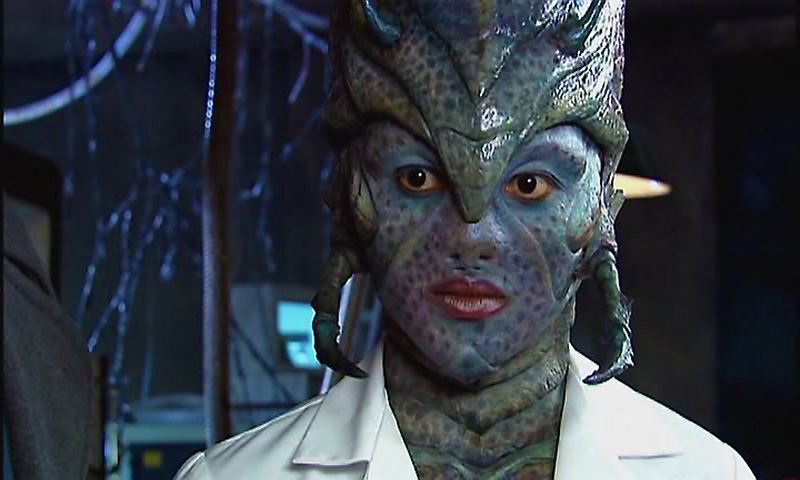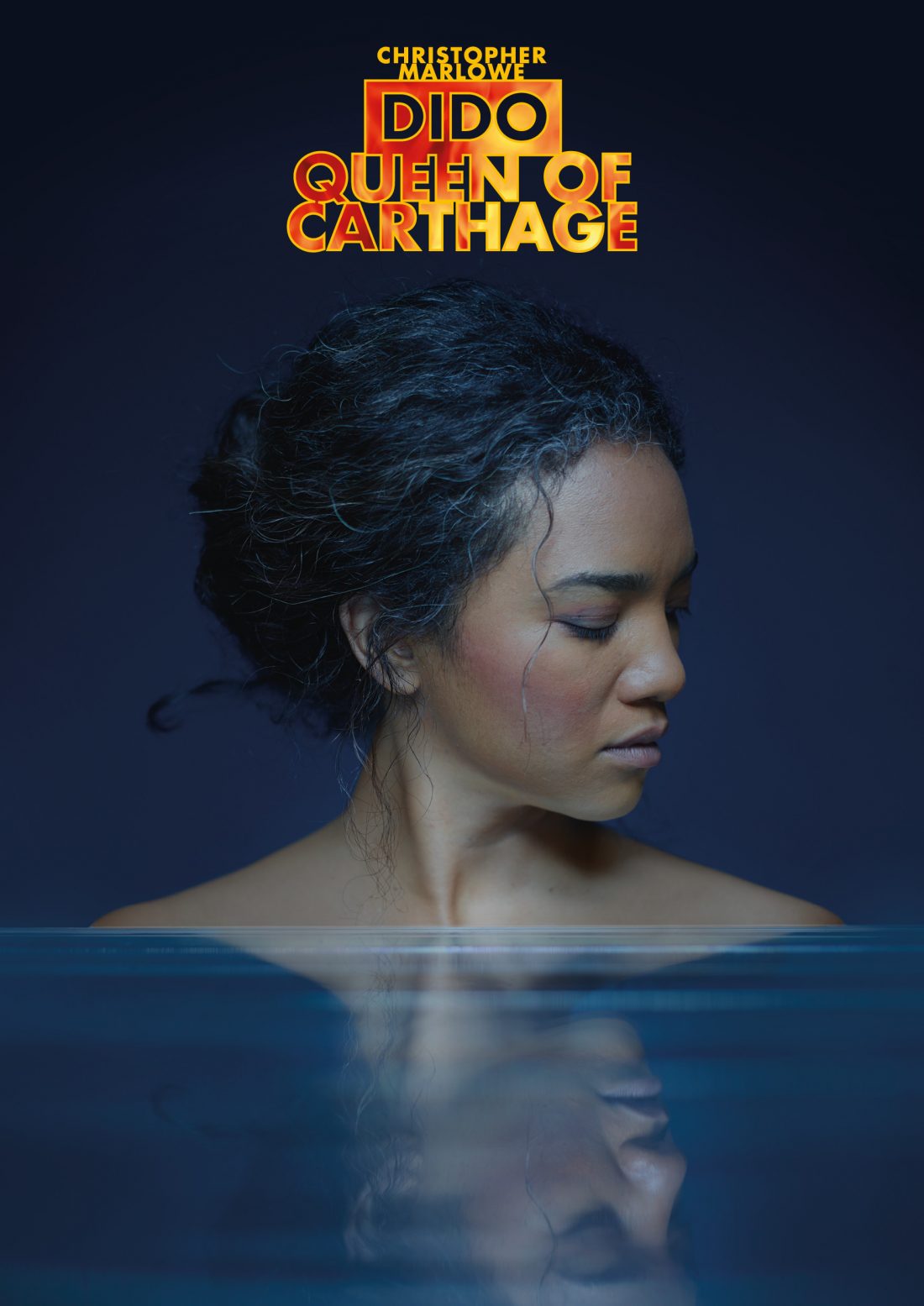Chipo Chung is a RADA-trained actress with an enviable acting career, both on the stage and the small screen; you may recognise her from the 2015 TV series A.D The Bible Continues where she played Mary Magdalene, a series hailed for its multi-racial casting.
Our exclusive interview with Chipo, just before she played Queen Dido in the Royal Shakespeare Company’s production of Dido, Queen of Carthage, explores her training, how her unique looks impact on the parts she plays, her TV work and much more.
Like most areas of life, perhaps more so in the acting world, identity and what you look like is very important. Having a clear understanding of your heritage and background is key and perhaps goes some way as to how others perceive you. Chipo is unequivocal: “I am African and I’m mixed race. I am Zimbabwean, my mother is Chinese Zimbabwean and that is through a second-generation immigrant, born in Zimbabwe and my dad is black Zimbabwean.”
We were curious about whether her distinctive and striking looks give her an edge in her career? She described it as a doubled-edged sword, acknowledging that being cast for a character is based very much on what you look like. “Whether that’s fat, thin, tall, short, dark, light, etc. Discrimination is part of the terms of how you get a job, and that has its positive and negative aspects.”

She has learned to play the cards that the duality of her features has dealt her. “Because I look a bit Asian, I think sometimes I have not been African enough for some parts and then because I’m too African, I’m not quite Chinese enough to play the Chinese parts and I’m not quite Arabic even though I am brown, etc. But on the positive side, and I think that’s what we have to dwell on, as artists, we’re all unique individuals and there’s no one who can quite replace us.”

Relatively uncommon, her features appear to lend toward perceived notions of what people could look like in the future. “I think my face is a face of the future when races are going to mix or it’s a face way of the past where we were more brown. Like, when I played Mary Madeline in A.D The Bible Continues, people thought it was a big deal for Mary Madeline to be a black woman, but actually in the year zero or 33AD, a think probably people in Israel, Palestine, probably looked like my kind of colour and when we were shooting in Morocco, it was wonderful because all the supporting artists, the extras, the crowds, were Berber, Moroccan Berbers and I looked quite a lot like them and in this play that I am doing right now, Dido Queen of Carthage, it’s set, and she lived somewhere between 800 and 500BC, in north Africa, so, yeah, there’s something about the ancient look that I manage to get cast in.”
Chipo, which means “gift” in Shona (a Zimbabwean language), was interested in acting as a child. She dabbled in debating and choir at school and describes herself as “quite academic”, going on to university with ambitions of becoming a film maker. However, when it came to making a choice, she chose drama school. She had to ask herself, “are you going to major in film or are you going to major in theatre”, I majored in theatre. Then it was, “are you going to go to film school or drama school?” and I went to drama school, so I chose to do my hobby and I am very grateful to my younger self for making that choice.”
Her journey was just beginning at this point. She secured a place at the world famous Royal Academy of Dramatic Art (RADA) one of the oldest and most prestigious drama schools in the UK that provides training for film, television and theatre. Speaking about attaining a much-coveted place at the institution, she said: “Just getting into RADA was a major dream come true for me, especially coming from Zimbabwe, which is so far away. It’s so prestigious, you know, I never thought that I would get in.”
With its lofty reputation, many would dismiss RADA as an elitist institution, but Chipo says that was not her experience at all. “From the outside, it has this reputation I guess from its alumni in the past, of being a rather posh artistic and elitist school and yeah it is elite in that it is competitive and that their number of students per year is quite small, but RADA has always had a very positive perspective in terms of diversity. Firstly, in terms of class and economics and making sure that anyone who gets into RADA, the school bends backwards to help them be able to afford it and really works very hard to fundraise the bursaries.”
She continues fervently, “I mean even when I was at RADA, there has always been a real push to get diversity in terms of ethnicity. Last year I saw a play at RADA, one of the third-year shows. It was Blues for an Alabama Sky by American playwright, Pearl Cleage and it had a five-person ensemble, all of whom were black, all of whom were perfectly cast for the play and it was brilliant, their acting was fantastic. It was perfectly cast. I give them a lot of respect for being able to watch a drama school play that was a fully black diaspora piece, I don’t think you would be able to do that at many drama schools.”
In Chipo’s time at RADA, there were four black students out of the class of 32, but she is keen to stress that just because they were black, within that, they couldn’t have been more different. It can be quite limiting to group all black people together, as this could have a tick box effect that actually restricts talent to get through. “There was a mixed-race girl who was playing all the classic juvenile leads and I would go up for castings opposite her and she would always get the part because she had been brilliant in something because she was more of a name. I always found it confounding, why can’t there be more than one brown girl. We may both be closer to the same skin tone, but in our talents and our personality we were as different as two blonde girls. It’s not enough to say that we have diversity because we have one person who represents that in our company. There’s a big difference between a Nigerian and a Zimbabwean and a Jamaican, we are all different and all part of this culture.”

In recent years, Chipo has enjoyed TV success. “Dr Who is always something that is first recognisable, even though I was under a blue prosthetic in that, but it was my first big television job. I was also in the Sky Atlantic series, Fortitude. I am currently on an Amazon Prime TV show called Into the Badlands. I really encourage your readers to watch it. It is a futuristic, Kung-Fu mash-up in which I play an archetype of The Master. This series really puts Game of Thrones to shame [in terms of representation] because the lead character’s Chinese American in the Bruce Lee kind of mode. His love interest is a mixed-race actress. The women characters are the best characters in the series and as far as style is concerned they have like 70s funk going on, you know, in the way that Kung-Fu movies did in the 70s, kind of like Enter the Dragon. It’s sort of feeding off a much more multicultural ray of ingredients and, you know, they cast The Master as a black woman which so shocked the fans.”
 Her most recent role, Queen Dido, couldn’t be more different. The two protagonists, Dido and Aeneas have a love story, kind of like Romeo and Juliet. “it’s a love story essentially, but still an outstanding story, because it’s not one that is done very often. Probably due to the fact that the lead character is a woman and even more shocking than that, for a play that was written over 500 years ago, she’s from Africa, so she is a black woman.”
Her most recent role, Queen Dido, couldn’t be more different. The two protagonists, Dido and Aeneas have a love story, kind of like Romeo and Juliet. “it’s a love story essentially, but still an outstanding story, because it’s not one that is done very often. Probably due to the fact that the lead character is a woman and even more shocking than that, for a play that was written over 500 years ago, she’s from Africa, so she is a black woman.”
Outside of her acting Chipo is passionate about her charitable endeavours. She co-founded the charity, SAFE-Kenya, which develops theatre for social change in Kenya focusing on HIV education and abolishing clitoridectomy. “I was supporting artists who created theatre for social change and one of the projects dealt with female genital mutilation within Masai. I was part of a circle of people who, following the direction of the Masai women, helped them to develop an alternate life’s passage and used song and storytelling to help shift that and that’s something I am very proud to be associated with.”
Watch Chipo in the title role of Dido, Queen of Carthage at the Swan Theatre between 15 September and 28 October 2017.












